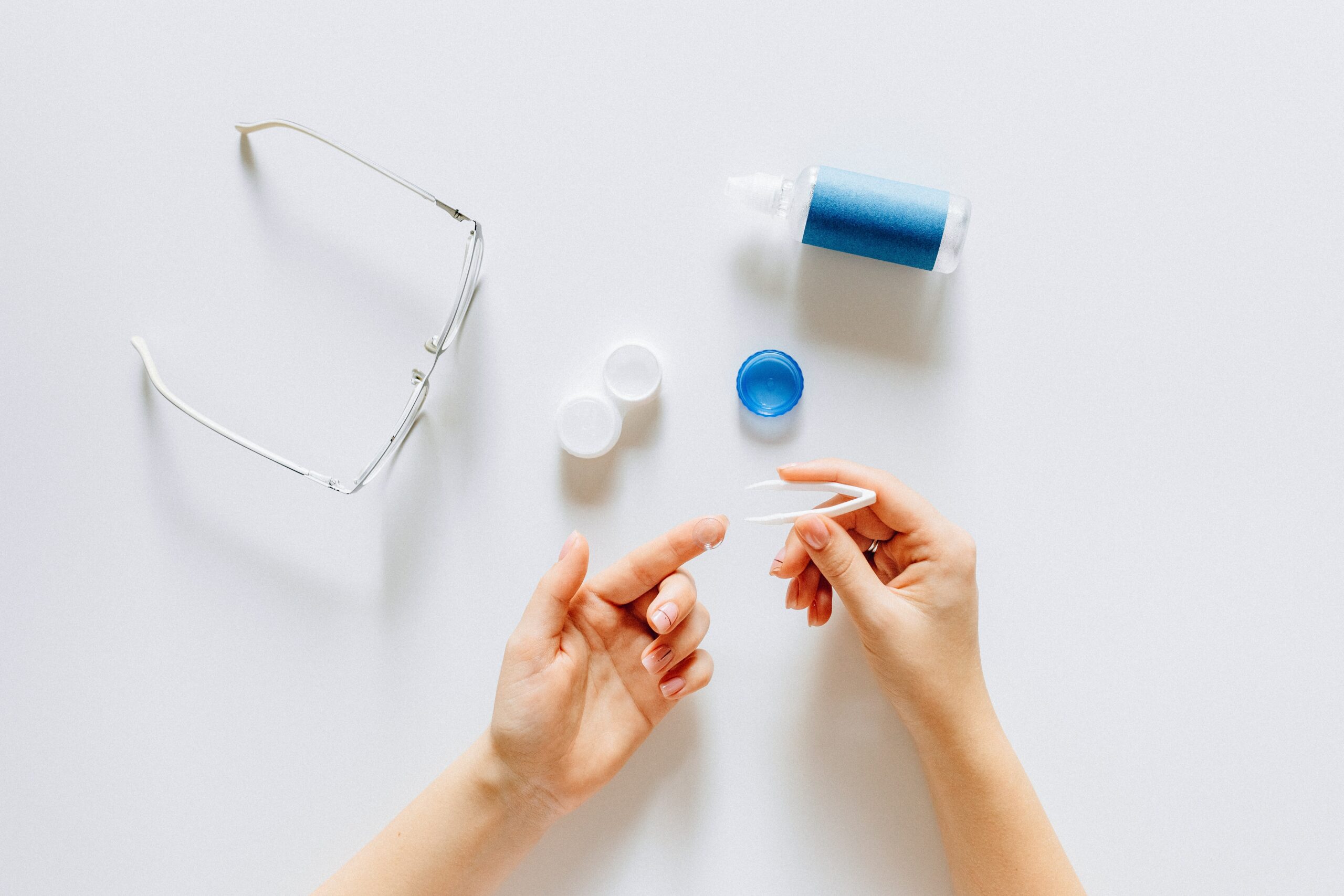An eye doctor offers soft contact lenses made from hydrogel or silicone hydrogel materials that are designed to make wearing them more comfortable. Hydrogel lenses rely on high water content and should be worn only for short durations in humid situations. Silicone hydrogel alternatives are more permeable to oxygen, facilitating longer wear, even in dry or air-conditioned environments. Here are some FAQs about soft contacts:
How Often Should I Change Soft Contacts?
Soft contact lenses must be replaced at regular intervals to enhance their hygiene and prevent eye complications. Daily disposable lenses are discarded after a single use and do not require cleaning or storage solutions. Biweekly and monthly lenses are reusable, but they require proper care and periodic replacement to remain hygienic. Overusing lenses can endanger eye health by increasing the risk of infection, causing eye irritation, and potentially scratching the cornea. Reusable lenses should be cleaned properly and regularly to reduce these same risks. Responsible replacement helps verify that your contacts perform their function and promote the long-term safety of your eyes.
Is it Possible to Sleep in Contacts?
Although some contacts feel comfortable when worn overnight, not all lenses should be worn continuously for extended periods. Soft lenses approved by the FDA for extended wear can be used over several nights. These typically contain silicone hydrogel, which provides high oxygen permeability, even when the eyelids are closed. Wearing lenses that are not designed for overnight wear increases the risk of infections, such as microbial keratitis or corneal ulcers. The symptoms include red eyes, blurred vision, morning dryness, or discomfort upon waking.
For those with dry eyes or allergies, overnight use should be avoided as it can exacerbate symptoms. Napping in lenses or not taking them off after a long night also impacts eye health. To remain safe, ask your eye doctor whether your lenses are safe to wear overnight, even with high-performance materials. If your eyes feel dry, gritty, or strained after wearing contacts overnight, the lenses should be removed.
How Do I Clean Contact Lenses?
Reusable soft contact lenses require regular cleaning to prevent infection or discomfort. Wash your lenses daily with the correct solution, rather than with soap and water or outdated products. Your optometrist should provide peroxide-based solutions that clean, rinse, and disinfect lenses safely. Saline solution is designed to rinse lenses and should never be used as a substitute for disinfectants in your cleaning regimen. Do not expose lenses to tap water, as it may contain microorganisms that harm the eyes or minerals that damage your lenses.
Wash your hands thoroughly before touching your lenses, and avoid using perfumed or oily soaps, as they can leave a residue. When not in use, contacts should be stored in a clean case with the lenses submerged in a cleaning solution. This prevents them from drying out or becoming contaminated. Improper care practices, such as topping off the solution or failing to rub the lens, may cause protein buildup or bacterial growth. In dry or dusty work environments, such as salons or construction sites, lenses often require more thorough cleaning.
Work With an Eye Doctor Today
Knowing how soft contact lenses function can help you make daily contact wear safer and more comfortable. Lens hygiene includes knowing how to maintain the material, using appropriate cleaning methods, and following the doctor’s recommended replacement schedule. Avoid sleeping in daytime lenses and over-wearing all types helps support eye health. Be aware of any changes in your vision or comfort, and do not overlook symptoms such as redness or persistent dryness. To receive professional assistance or a lens consultation, schedule an eye examination with an optometrist.
- Choosing the Right Plastic Surgeon for Your Cosmetic Procedure
- Understanding Different Types of Laser Treatments for Skin Rejuvenation
- Why a Family Dentist is Key for Maintaining Oral Health
- The Benefits of Regular Visits to a Wellness Spa
- Exploring the Emotional and Psychological Triggers of Eating Disorders


Leave a Reply